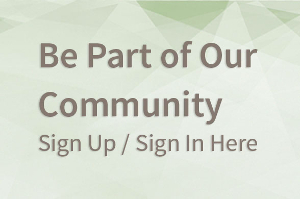BK Blog Post
Things That P*ss Me Off: People Getting Excited About Marketing and Publicity Trends That No Longer Work
 Posted by
Jeevan Sivasubramaniam,
Vice President, Editorial,
Berrett-Koehler Publishers Inc.
Posted by
Jeevan Sivasubramaniam,
Vice President, Editorial,
Berrett-Koehler Publishers Inc.
Everyone has an opinion on what sells books, the problem is that most of those opinions are out of date and no longer valid.
Specifically, these five methods — which did work once but now don’t as much — come to mind:
1. Book Reviews in Print: It used to be that getting a positive review in a major newspaper would launch a book on to bestseller lists and let it sit there for many weeks at least. No more. Publishers Weekly conducted research on the books featured in the New York Times Book Review sections in May 2012 and how sales were impacted following publication of the reviews. Of course, book sales were positively impacted somewhat (this is the New York Times after all), but on the whole there were only a few hundred more copies sold the week of the review than usual. And after the week was up, the number dipped back down radically. And that’s if it is featured in the New York Times.
2. Appearing on Radio Shows. It used to be that radio shows could help launch books, but not so much any more. Blame it on the infinite number of podcasts and internet radio stations and shows as well as other mediums, but the average radio show now barely budges book sales. The only exception is radio shows with a devoted following, and these shows are not the ones you would think would make a book successful. Fresh Air on NPR is popular but its fan base is not devoted, so getting a book featured on there is not quite the hit-making tactic it used to be. On the other hand, Coast to Coast (on AM radio) comes on at weird hours and they talk about alien abductions and ghosts, but their followers are rabid and featured authors consistently rack up big sales.
3. Bookstore Tours: Unless you are a hugely popular author, a national bookstore tour doesn’t do much at all. Depending on the bookstores, they may not even do much publicity to announce your appearance (it doesn’t help that bookstore events coordinators are notoriously poorly paid), and because these appearances are usually timed to take place during work hours or just after work, people aren’t going to attend unless they’re huge fans. Your expenses in traveling around to do these events can often outweigh the sales income from such tours.
4. Paid Promotions in Stores: By now you know that every book in any chain or airport book store that is placed on a special table, “favorites” bookshelf by the front, by the cash register or even just face-out occupies that space because the publisher paid for that placement. Such placement costs thousands of dollars and there is no guarantee that all the bookstores in a chain will even follow through. Given how few sales come through actual bookstores (versus online) and how much it costs, paid store promotions have little impact and can often lose money.
5. Jumping on Trends: When The Secret came out, suddenly everyone was an expert on the laws of attraction. When 50 Shades… came out, everyone jumped on the hausfrau erotica trail. Jumping on the bandwagon worked somewhat when there were only a certain number of publishers in the marketplace, but not any more. Now, with online and self-publishing models cropping up everywhere, there are a thousand imitators to any successful book where there were previously perhaps only fifty. When everyone jumps on the same trend, it ceases to be a trend.




